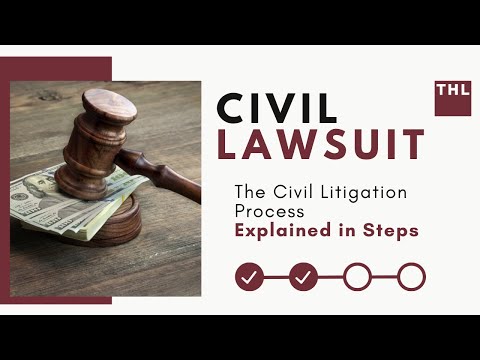
Welcome to this informative article on the prevalence of settlements in civil litigation. In the dynamic world of US law, settlements play a significant role in the resolution of disputes. Before we delve into the depths of this topic, it is essential to note that this article is intended solely for informational purposes. It is always advisable to cross-reference the information provided here with other reliable sources or seek guidance from legal professionals. So, let’s embark on our exploration of the fascinating realm of settlements in civil litigation.
The Settlement Rate in Civil Suits: Understanding the Percentage of Cases Resolved outside of Court
The Settlement Rate in Civil Suits: Understanding the Percentage of Cases Resolved outside of Court
In the realm of civil litigation, it is crucial to have a comprehensive understanding of the settlement rate – the percentage of cases that are resolved outside of court through negotiation and agreement between the parties involved. Settlements are a common occurrence in civil suits, and it is important to delve into the prevalence of these resolutions and their impact on the legal system.
📋 Content in this article
Understanding Settlements:
1. Settlements occur when parties involved in a civil suit reach an agreement to resolve their dispute without the need for a trial.
2. This agreement typically involves one party providing compensation or some form of remedy to the other party, in exchange for the latter party dropping their legal claim.
3. Settlements can be reached at any stage of the litigation process – before a lawsuit is filed, during pre-trial negotiations, or even during the trial itself.
The Prevalence of Settlements:
1. It is estimated that approximately 95% of civil cases are resolved through settlement rather than proceeding to trial.
2. The high prevalence of settlements can be attributed to various factors, including the desire to avoid the time, expense, and uncertainty associated with a trial.
3. Parties may also choose to settle in order to maintain confidentiality or protect their reputation.
4. Additionally, settlements can be advantageous as they allow parties to have more control over the outcome of their case, rather than leaving it in the hands of a judge or jury.
Benefits of Settlements:
1. Efficiency: Settling a case allows parties to avoid a lengthy and often complex trial process. This can save significant time and resources for all parties involved.
2. Cost-effectiveness: Trials can be expensive due to attorney fees, court costs, expert witness fees, and other associated expenses. Settling a case can help save substantial amounts of money.
3.
The Ubiquitous Practice of Settlements in Civil Litigation
The Prevalence of Settlements in Civil Litigation: An In-depth Analysis
In the realm of civil litigation, the practice of settlements holds a significant role, acting as a common method of resolving disputes before they proceed to trial. Settlements provide parties with an opportunity to negotiate and reach a mutually agreed-upon resolution without the need for a formal court process. This article aims to delve into the prevalence of settlements in civil litigation, highlighting its ubiquity and exploring its benefits and drawbacks.
1. The Ubiquity of Settlements:
– Settlements are pervasive in civil litigation cases across the United States.
– They are utilized in a wide range of legal matters, including personal injury claims, contract disputes, employment cases, and more.
– The vast majority of civil cases are resolved through settlements, with only a small fraction proceeding to trial.
2. Benefits of Settlements:
– Cost-effectiveness: Settling a case typically involves avoiding the substantial costs associated with litigation, such as attorney fees, court fees, and expert witness fees.
– Time-saving: Settling allows parties to resolve their disputes promptly, without the need for lengthy court proceedings that can drag on for months or even years.
– Control over outcomes: Parties have more control over the outcome of their case when they engage in settlement negotiations, as they can tailor the terms to meet their individual needs and interests.
3. Drawbacks of Settlements:
– Perceived injustice: Some critics argue that settling a case may result in an unjust outcome, as parties may be compelled to compromise on their legal rights or accept less favorable terms.
– Loss of precedent: Settlements do not establish formal legal precedents and therefore may not contribute to the development of case law or legal principles.
– Power imbalance: In some cases, one party may
Title: The Prevalence of Settlements in Civil Litigation: An In-depth Analysis
Introduction:
Civil litigation plays a significant role in the American legal system, as it allows individuals and organizations to seek remedies for the violation of their legal rights. While trials have traditionally been seen as the primary method of resolving disputes, settlements have become increasingly prevalent in the civil litigation process. In this article, we will explore the importance of staying current on the topic of settlements in civil litigation and highlight the need for readers to verify and cross-reference the content provided.
Understanding Settlements in Civil Litigation:
1. Definition: A settlement in civil litigation refers to an agreement reached between parties involved in a legal dispute, whereby they resolve their differences without proceeding to trial.
Factors Contributing to the Prevalence of Settlements:
1. Time and Cost Considerations: Litigation can be a lengthy and costly process. Settlements offer a quicker resolution and can save parties significant time and expense associated with trials.
Importance of Staying Current on Settlements in Civil Litigation:
1. Legal Developments: The landscape of settlements in civil litigation is continuously evolving due to changes in laws, court precedents, and legal interpretations. Staying current on these developments is crucial to understand the legal framework within which settlements operate.
